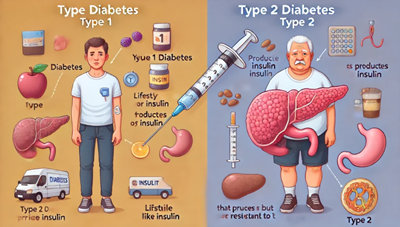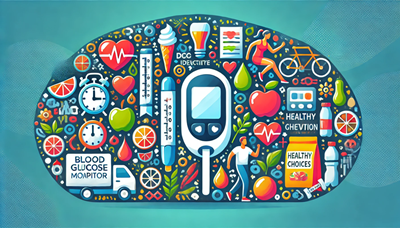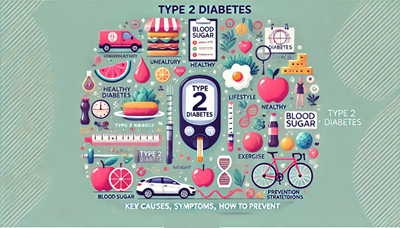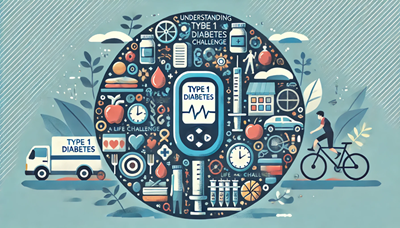Type 1 vs. Type 2 Diabetes: What You Need to Know
Diabetes is a chronic condition that affects how your body processes glucose, a vital source of energy. While there are different types of diabetes, Type 1 and Type 2 are the most common. Despite sharing some similarities, they differ significantly in their causes, symptoms, and treatment. Type 1 Diabetes Type 1 diabetes is an autoimmune…





